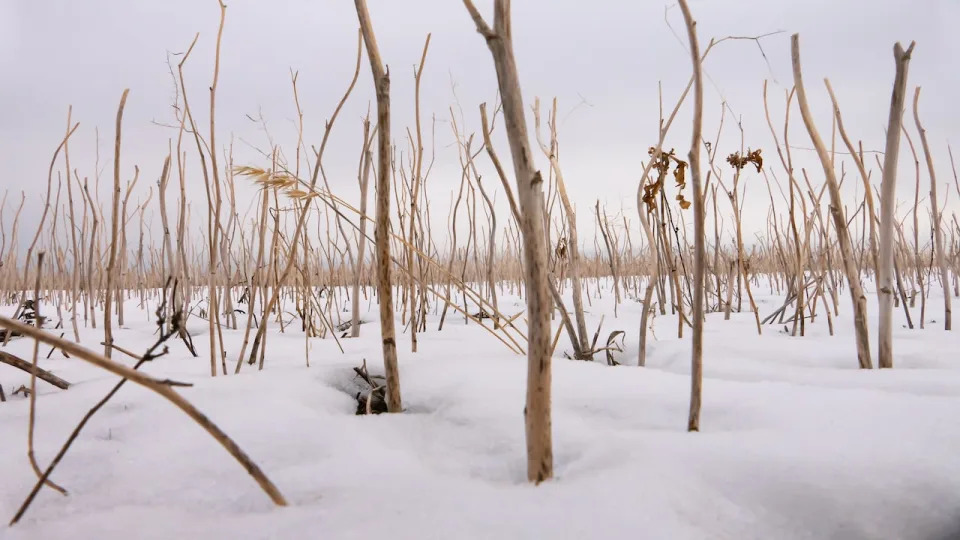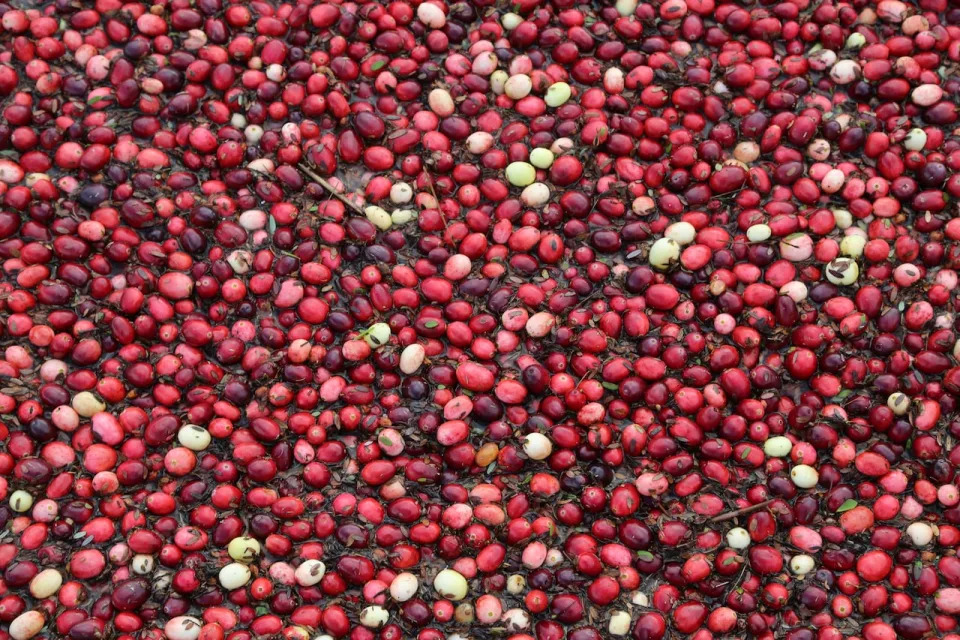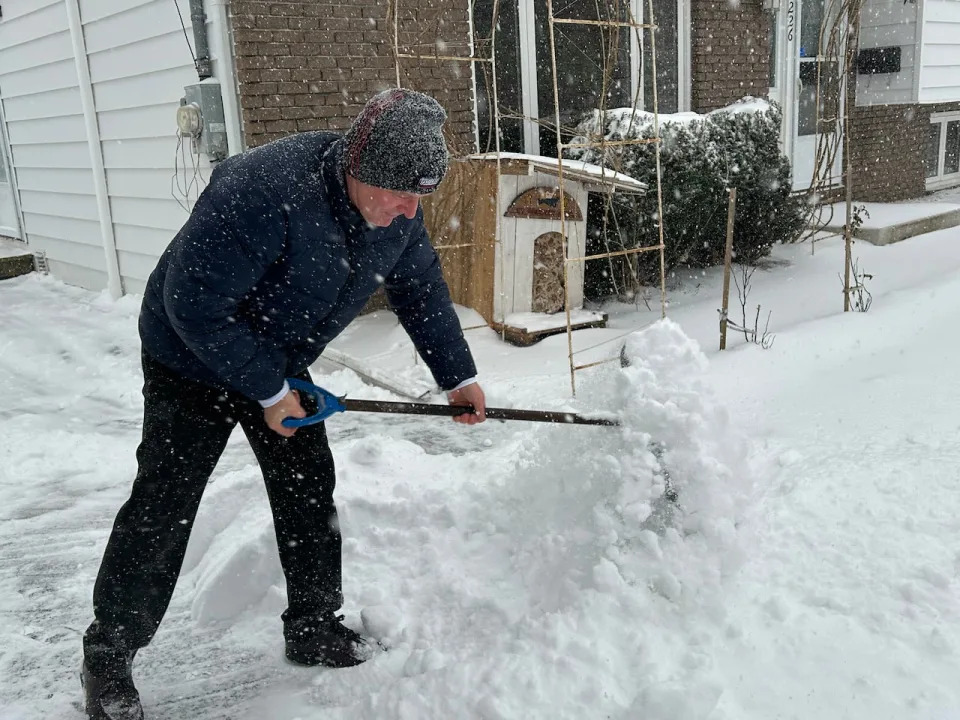CBC
Mon, February 5, 2024

New Brunswick is seeing lower than average snowfall totals, which could impact production for fruit farmers. (CBC / Radio-Canada - image credit)
While many New Brunswickers might be pleased to have less snow to shovel this winter, some fruit farmers are concerned the low accumulation could impact crops.
"Snow cover for us would be an extra layer of protection," said Arick Streatch, who owns Sunberry Cranberry Producers in Maugerville. "The more snow we can get on our ice the better so when we do go into our melting phases, we don't lose too much."
Several crops in New Brunswick including potatoes, blueberries, apples and cranberries depend on snow for moisture and protection from extreme temperatures. The insulating layer can prevent fruit from drying out and being destroyed.
At Streatch's cranberry farm, the fruit is protected by flooding the bogs to create a thick layer of ice. Snowfall on top of that is an added layer that keeps the ice solid when temperatures rise above freezing.
Snow also allows cranberry farmers to drive on top of the ice to add sand as part of the cultivating process.

Cranberries grow on a vine and water is used several times a year to flood them.
New Brunswick cranberry bogs are flooded as part of the harvesting process. Some producers also add water to create a protective layer of ice during the winter.
(Alexandre Silberman/CBC)
While accumulation is well below average, Streatch said his cranberry bog currently has eight to 10 inches of snow on top of six to eight inches of ice. He's hopeful more snow will fall in the coming weeks.
"If you've got the snow on and you've got the ice and then we start running into warmer weather, then that begins to melt. And if you get hit with a cold snap that we weren't expecting, then that could be harmful to the crops," he said.
Melting snow
At Belliveau Orchard in Memramcook, a layer of snow is covering the roots of apple trees.
Samuel Bourgeois, owner and chair of Apples NB, said the accumulation works as an "insulator" to protect the trees from damage.
He said there is "pretty good cover" on the ground, but with temperatures above freezing, the snow is melting.
"When the guys are pruning, they don't need any snow shoes, everything is easier to do the work," he said.
While accumulation is well below average, Streatch said his cranberry bog currently has eight to 10 inches of snow on top of six to eight inches of ice. He's hopeful more snow will fall in the coming weeks.
"If you've got the snow on and you've got the ice and then we start running into warmer weather, then that begins to melt. And if you get hit with a cold snap that we weren't expecting, then that could be harmful to the crops," he said.
Melting snow
At Belliveau Orchard in Memramcook, a layer of snow is covering the roots of apple trees.
Samuel Bourgeois, owner and chair of Apples NB, said the accumulation works as an "insulator" to protect the trees from damage.
He said there is "pretty good cover" on the ground, but with temperatures above freezing, the snow is melting.
"When the guys are pruning, they don't need any snow shoes, everything is easier to do the work," he said.

Parts of southern New Brunswick, including Moncton, have seen about half of the average snowfall for December and January. (Rhythm Rathi/CBC)
Bourgeois said mild temperatures this winter are having a bit of an impact in the southeast.
"The only downside to this is cold weather eliminates some of the insects, so far it hasn't been very, very cold to eliminate that," he said.
Mild temperatures, little snow
New Brunswick has minimal snow accumulation on the ground compared to historic averages, particularly in southern parts of the province.
"It's probably no surprise, we are definitely below normal so far for December and January," said Jill Maepea, a meteorologist with Environment Canada.
"Overall precipitation is below normal, whether it's snow, rain or freezing precipitation."
Maepea said areas in the north have seen near-normal snowfall, while the southern parts of the province have only seen about half as much snow as they normally would.
The province has also seen temperatures two to four degrees above historic averages for December and January, she said.
No comments:
Post a Comment